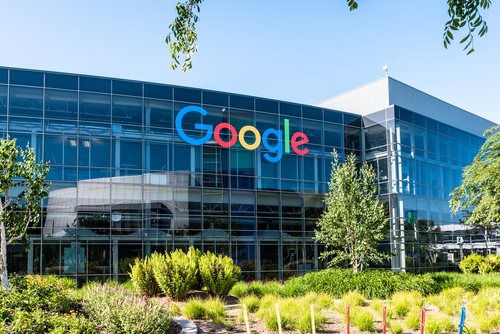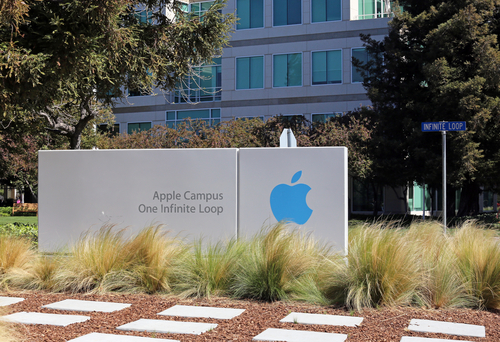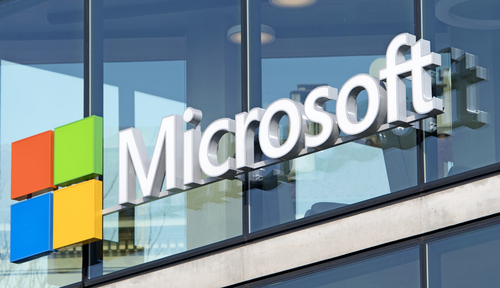



Get new exclusive access to healthcare business reports & breaking news




According to the Center for Medicare and Medicaid Services (CMS), US health spending has already reached 3.3 trillion dollars in 2016 and is expected to increase 5.5% annually on average through 2026. In the eyes of Google, Amazon, Apple, and Microsoft, healthcare presents a tremendous business opportunity – it’s no wonder the top tech companies are looking to lead healthcare innovation.
At a high level, each of the “Big 4” tech companies are leveraging their own core business strengths to reinvent healthcare by developing and collaborating on new tools for patients, care providers, and insurers that will position them for healthcare domination.


Google sees the future of healthcare through the lens of structured data and AI – and rightly so, considering about a third of the world’s data is generated from the healthcare industry. By leveraging its strengths in AI and machine learning to make sense of vast amounts of health data, Google can position itself as healthcare innovation leader.
At a high level, Google aims to stand out in healthcare by applying its AI capabilities in the areas of disease detection, data interoperability, and health insurance. According to Google AI, “We think that AI is poised to transform medicine, delivering new, assistive technologies that will empower doctors to better serve their patients.”
By collaborating with doctors in the US and abroad, Google has already developed an algorithm that can diagnose diabetic retinopathy in images at a level of accuracy likened to that of board-certified ophthalmologists.
In 2017, Google’s life sciences division Verily, Duke University School of Medicine, and Stanford Medicine launched Project Baseline. This longitudinal study of approximately 10,000 people (and potentially millions of data points) over a four year period aims to establish a “baseline” of good health and understanding the onset and risk factors for disease.
In a recent report by CNBC, Verily “has been in talks with insurers about jointly bidding for contracts that would involve taking on risk for hundreds of thousands of patients.” The data-driven solution that Verily provides could mean disruption of the health insurance industry, by increasing patient engagement, speeding up intervention, and lowering costs of care.
Google is the most active among its big tech rivals in acquiring and investing in AI talent and applications. Since its first round of funding in 2009, Alphabet’s venture arm, Google Ventures (GV), has backed nearly 60 health-related enterprises ranging from genetics to telemedicine.
According to Business Insider, GV is investing about one-third of its Alphabet funds into healthcare and life science startups. On top of funding, GV backed companies are supported by Google’s engineering, PR and marketing, and talent resources.
This year alone, five companies in the GV portfolio have gone public with 23andMe to file by the end of the year. 23andMe is a very well-known direct to consumer biotech and personal genomics company with the largest DNA database for genetics research in the world.
In addition, Alphabet is no stranger to collaborations and is serious about securing a stronghold in the healthcare industry, filing 186 health-related patents between 2013 and 2017. That’s more than the number of health-related patents Microsoft and Apple filed during the same timeframe, combined.


Apple carved a niche for itself as one of the top tech companies in healthcare with a focus on patient facing products, securing one of nine coveted spots in the FDA’s Digital Health Software Precertification Program.
Under the program guidelines, companies chosen to participate were evaluated based on their robustness and quality control protocols, which certified them for future medical technologies. In essence, the FDA sees the importance of digital health and removed the red tape to speed up healthcare innovation.
In November 2017, Apple partnered with Stanford Medicine to conduct the Apple Heart Study, which uses the heart rate sensors in the Apple Watch to collect irregular heartbeat data and notify users of potentially life threatening conditions like atrial fibrillation. Additionally, with this collaboration, Apple aims to improve the technology used to detect abnormal heart beats.
But that’s not all.
In recent months, Apple has enabled medical researchers to track Parkinson’s Disease through the sensors in its smartwatch. Based on the data collected on patients’ tremors, researchers are able to adjust medication dosages through its ‘movement disorder API’.
Other examples of Apple using its products to track diseases include using the iPhone X for vision tests, a hearing test feature in its AirPods, as well as a speech recognition tool to detect speech impediments associated with stroke.
Known for its consumer products, Apple is innovating the ways in which medical researchers and app developers prevent disease. One of the biggest announcements from Apple’s Worldwide Developers Conference is open health record data. Launching in Fall 2018, Apple’s HealthKit API will allow users to share their clinical health data with developers stored on their mobile devices through trusted third party apps.
A prime example of the HealthKit API in action is helping the Medisafe app address the $300 billion drug non-adherence problem. The healthcare industry is highly regulated and subject to stringent regulations, which means health data is often siloed. Medisafe utilizes Apple’s HealthKit API to enable the seamless exchange of relevant health data among patients, payers, and providers to increase drug adherence.
Apple Pay is also streamlining healthcare payments. In 2015, Instamed is the first to bring mobile payments to co-pays. This year, UnitedHealthcare made a splash at the Consumer Electronics Show (CES) by rolling out Apple Pay for consumers with health savings accounts.


By now, Amazon has made it abundantly clear that it’s entering the healthcare industry through multiple arenas. In 2014, Amazon first entered the medical supplies business with a deal through Cardinal Health and as a result, is now licensed to distribute medical supplies to providers in 43 states.
Considering how the cost of medical supplies are second only to labor for hospital spending, and with its 100 million Amazon Prime members and supply chain expertise, the online retail behemoth is poised to completely change healthcare supply chain landscape.
The results of a survey conducted by Reaction Data of C-level hospital executives and directors indicates that 62% are in support of Amazon entering the medical supplies market and 75% say Amazon would be highly successful in making the move.
Amazon, JPMorgan Chase, and Berkshire Hathaway announced the formation of a new healthcare company, providing their employees with technology solutions to access quality care at a reasonable cost, free of profit incentives. There are roughly 1.2 million employees, combined, scattered across different markets, which means vast amounts of data. With advances in data analytics and artificial intelligence, regardless of the price tag for employees, the troves of health data that can be interpreted and analyzed will prove to be a gold mine for Amazon and its partner.
In the cloud computing arena, Amazon Web Services (AWS) has been pitching to healthcare customers going head to head against Microsoft and Google. According to CBI Insights, AWS invested in 10 startups in 2017 and is betting heavily on AI and Alexa driven ecosystems. This year alone, nine AWS healthcare startups presented at HIMSS.
To further signify Amazon is serious about healthcare, is the formation of its stealth lab, 1492, or Amazon X. CNBC reported on the bold undertakings in health innovation from cancer research to medical records, to the transportation of goods from hub to final delivery.
In June 2018, Amazon announced that it will acquire PillPack, an online pharmacy startup that has mail-order licenses in all 50 states and works with Medicare plans. This move would allow the online retail giant to expand quickly in healthcare by disrupting the $560 billion pharmaceutical industry.


In 2017, Microsoft set up a health department in its Cambridge research lab to use artificial intelligence, machine learning, and cloud computing to enter healthcare. Patient monitoring solutions as well as diabetes research were areas of focus for the tech giant looking to improve healthcare.
However, long before 2017, Microsoft has earned itself a reputation in healthcare as a leading provider of enterprise solutions with Windows as the go-to hospital operating system. According to a report by RightScale, Microsoft Azure has experienced 11% growth compared to Amazon Web Services’ 7% last year.
Considering the ubiquity of the Windows operating system, it follows that Microsoft Azure would be a logical first choice to integrate seamlessly with healthcare IT infrastructure.
Another differentiator for Azure is its ability to manage data security and HIPAA compliance in the cloud. A team of dedicated IT professionals manages Azure’s security and performance as opposed to on-premises resources that require daily updating.
The recent findings reported by Ernst & Young, Microsoft filed for 73 healthcare-related patents between 2013 to 2017 largely related to artificial intelligence and telehealth. Cloud computing, cybersecurity, and genomics and precision medicine are other key areas in which Microsoft has done significant work.
Microsoft is betting that healthcare will be AI-driven with Healthcare NExT, its flagship healthcare initiative. Considering how Gartner forecasts AI-derived business value to reach $3.9 trillion by 2022 and 90% of hospitals will be driven by AI, Microsoft is probably right.
Healthcare NExT aims to transform healthcare by combining research and health product development. The initiative also includes collaborations with healthcare partners and Microsoft’s AI resources and cloud solutions with the goal of capturing AI opportunities while continuing to innovate health technologies. There are currently 22 companies that are part of the Microsoft AI in Health Partner Alliance.
The Microsoft Healthcare unit is a multi-billion dollar vertical for the company with its 1,100 employees and 168,000 customers, the computer giant is no stranger to collaborations. Since joining the company in 2010, its Chief Medical Officer, Dr. Simon Kos has facilitated over 14,000 partnerships with hospitals and healthcare institutions worldwide.
In June 2018, Microsoft hired Joshua Mandel, Chief Architect and Jim Weinstein, Vice President of Microsoft Healthcare and Head of Innovation and Health Equity. Both executives will advance Microsoft’s goal of applying AI, machine learning, and other big data analytics strategies to solve complex problems in healthcare while speeding up healthcare innovation.
Digital innovation has forever changed the way people interact and communicate. Coupled with the fact that the trillion dollar healthcare industry is up for disruption, this presents a business opportunity that’s too lucrative to ignore – especially for global tech companies.
Each of the “Big 4” tech companies are seeking to emerge as leaders in healthcare, leveraging their core business strengths. Google in data, Apple in consumer devices, Amazon as an online-retail giant, and Microsoft as a trusted leader in healthcare IT. Not only are the top tech companies seeking to innovate the industry, they’re seeking partnerships, talent, and minds to aid in the fight to emerge as the champion of healthcare.